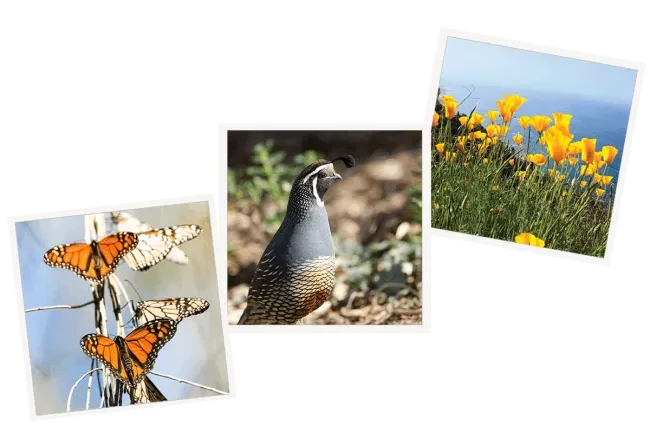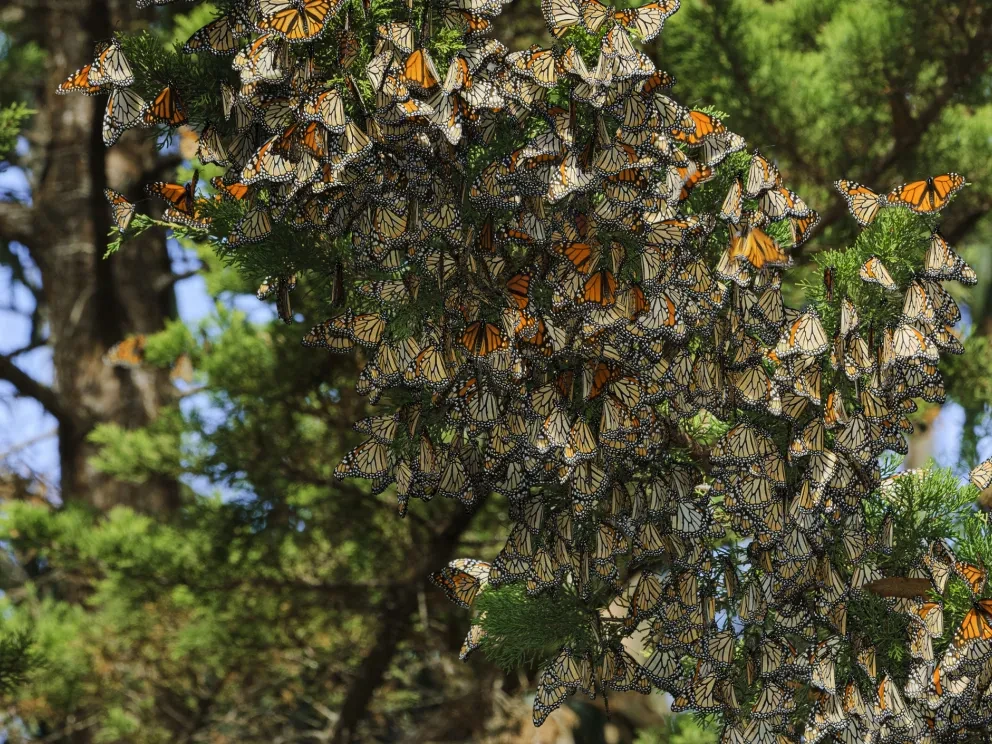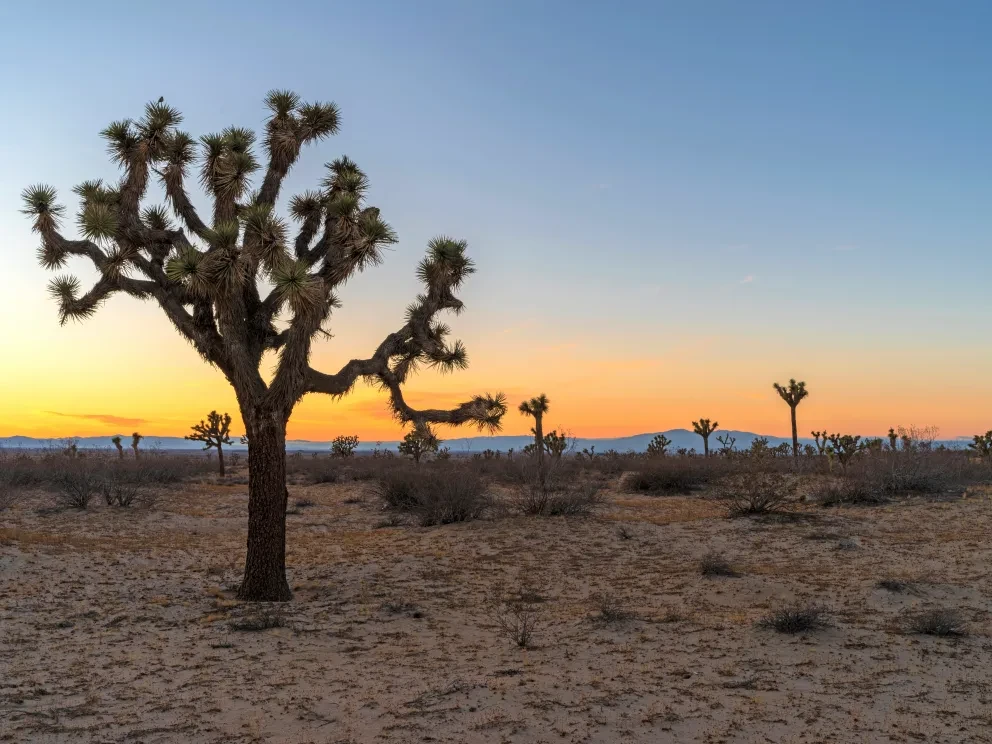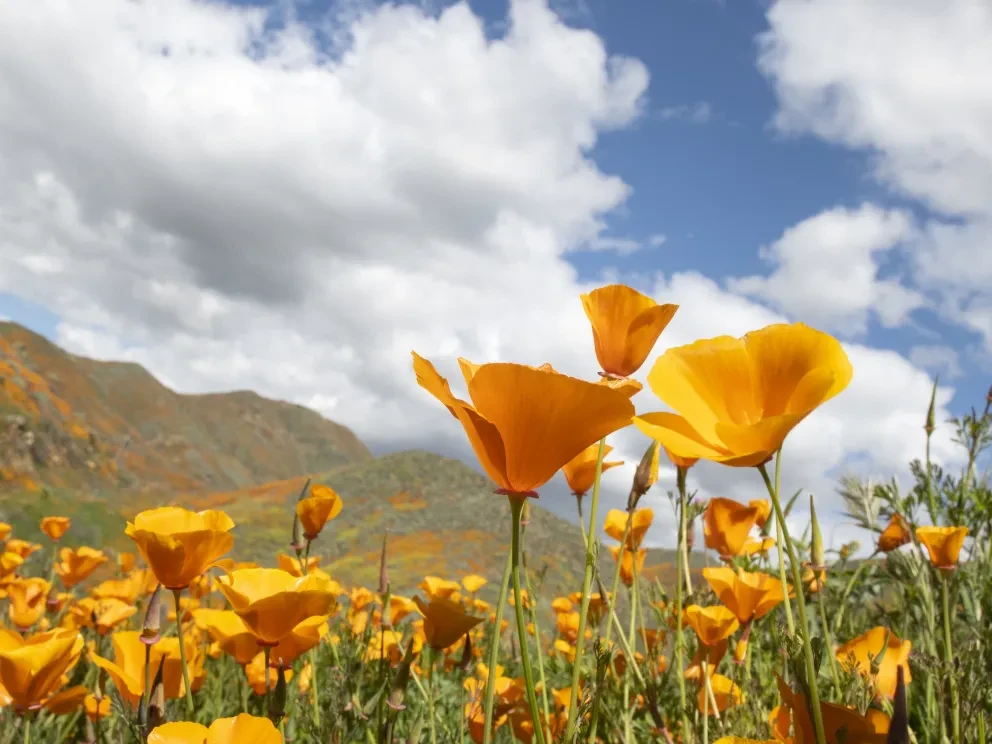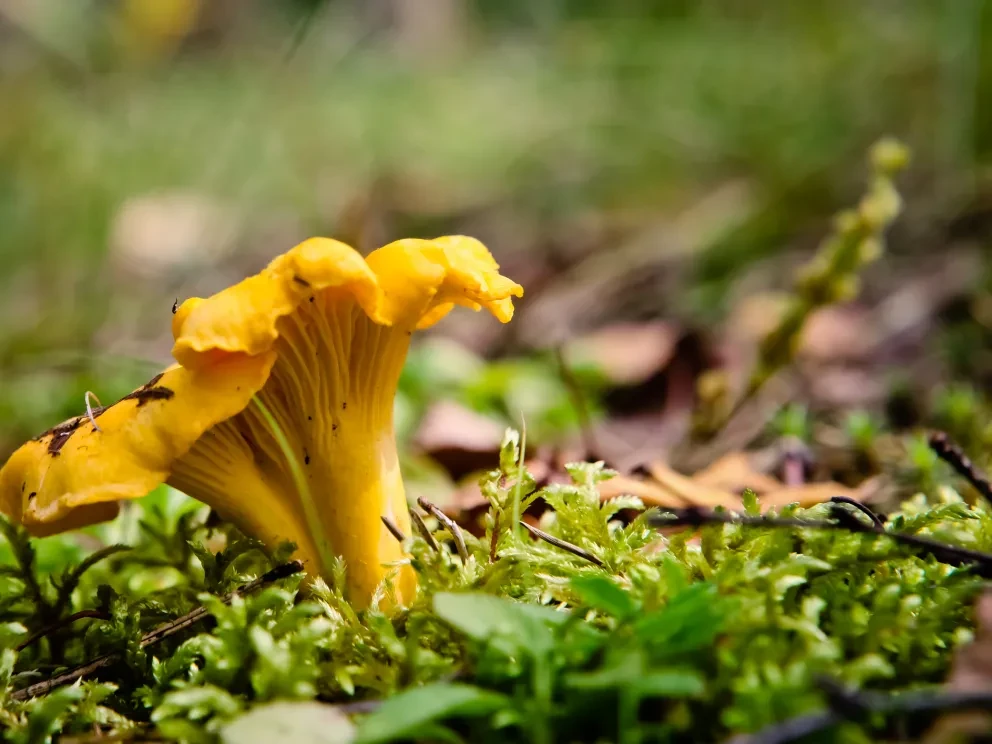California's stunning landscapes are home to some of the world's most extraordinary species, including the stoic Joshua trees of Southern California and the colorful western monarch butterflies that overwinter in our state parks.
Preserving biodiversity: The opportunity and the obstacles
With over 6,500 native plant species, 1,000 native vertebrate species, and 30,000 insect species, our state has extraordinary biodiversity. Plus, a significant number of these species are endemic, meaning they are found nowhere else in the world!
However, this rich biodiversity is decreasing at an alarming rate due to habitat loss and climate change. Human activity has degraded ecosystems and destroyed key habitats, and legacy infrastructure such as river dams and filled estuaries has significantly impacted numerous California species. Already, native species have declined by 20% and approximately 400 plant and animal species are listed as threatened or endangered.
In the face of this biodiversity crisis, California state parks are key to preserving vital habitat for species across the state, from coniferous forests to expansive grasslands.
Together, we can protect California
As we continue to face the challenges of climate change, California State Parks Foundation is dedicated to safeguarding the rich biodiversity that makes our state so unique. But we can’t do it alone. We need your help! Now through December 3, Giving Tuesday — or what we’re calling Giving Parksday! — you can play a vital role in protecting California’s biodiversity.
Through restoration efforts, habitat protection, and public awareness campaigns, we are fighting to ensure that future generations will still have the chance to experience the wonders of California’s natural heritage.
Every donation made between now through December 3 will be matched, up to $50,000, doubling the impact you can make in parks.
Your support will help fund critical programs that restore habitats, remove invasive species, and protect iconic California species such as:
Western monarch butterflies
We’re restoring vital overwintering sites along California’s coast, giving monarchs a place to thrive. Through our 2024 Monarch Conservation Grant, California State Parks Foundation is partnering with the Central Coast State Parks Association on a major overwintering grove restoration project at Pismo State Beach. Over 100,000 visitors travel to Pismo State Beach every year to see overwintering monarchs, and last year, the site hosted the second-highest number of monarchs out of all overwintering sites in California.
Joshua trees
When many people think of Joshua trees, Joshua Tree National Park immediately comes to mind, but these majestic trees call state parks home too. Unfortunately, Joshua trees are increasingly threatened by rising temperatures, prolonged drought, and other impacts of climate change. In response, California State Parks Foundation is supporting critical research in Arthur B. Ripley Desert Woodland State Park, where visitors can explore mature stands of Joshua trees and California juniper trees. By learning more about how Joshua trees respond to the effects of climate change, we can help protect this species for future generations.
California poppies
This iconic orange bloom is a highly recognizable symbol here in California — so much so that it’s our state flower! Throughout the year, California State Parks Foundation’s volunteer program removes invasive species such as fennel, mustard, and thistle to allow native species like the California poppy to thrive. This ensures visitors can enjoy the blooms along the coast and in the spring when the hills of Southern California are covered with the orange flower.
Golden chanterelle mushrooms
Did you know we have a state mushroom? California has many official symbols representing our state, and this one recently joined the ranks! Set by state law, California's state symbols provide significant natural, cultural, and historical meaning. Given California's wealth of natural resources and the essential role mushrooms play in maintaining our biodiversity, the golden chanterelle mushroom has finally been added to the family. Recognition of a state mushroom honors and helps increase awareness and appreciation of the natural world, and California State Parks Foundation supported Assembly Bill 261 which brought this new symbol to fruition.
Protecting these iconic species and the landscapes they depend on is more urgent than ever. When we lose a species, we don’t just lose a beautiful piece of nature — we lose the intricate balance that sustains life in our parks.
This Giving Parksday, your donation plays a crucial role in our ongoing efforts to protect these species and their habitats. Join us in this important mission.
